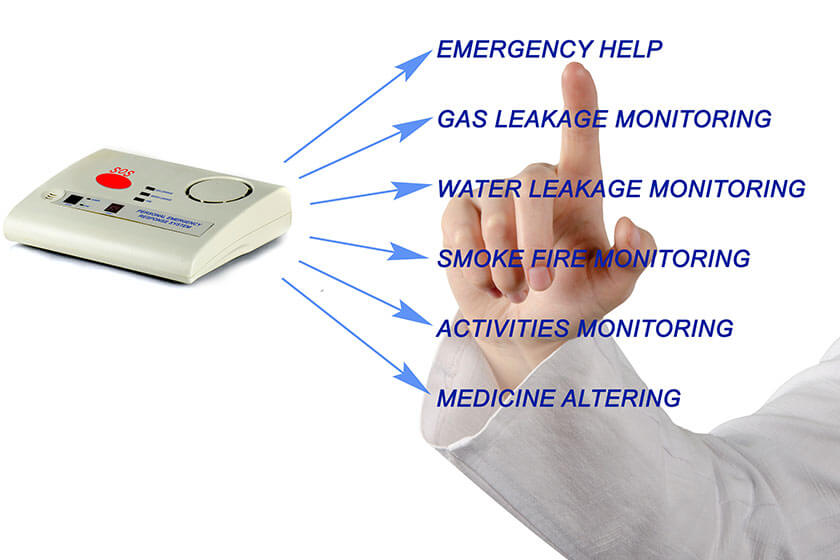Are you thinking of finding a medical alert system for your loved ones in their golden years? After all, a medical alert system can give you and your family members peace of mind. Simply knowing that aid is just a button away, no matter if you or others are there or not, can allow your loved ones to carry on with their independent and active lifestyle in comfort. But with every medical alert system being different and offering varying levels of service, which should you choose for your parent then? Do not worry. Here is how you can find the right medical alert system for your loved ones.
In-Home vs. Mobile Medical Alert Systems
Generally, there are two types of medical alert systems – the in-home and mobile medical alert systems. Both medical alert systems are personal medical gadgets that link your loved ones to medical services or you swiftly and conveniently. The systems are mostly utilized for medical emergencies, but can also help your parent in other situations like fires or house invasions.
As the name suggests, an in-home system works for those that spend most of their time at home. If this is your loved ones, consider getting an in-home medical alert system. It comes with a base station and a wearable component with an emergency button, such as a necklace, bracelet, or belt clip. Simply permanently install the base station in a set location in the house. In addition, remind them to press the huge button on the wearable component to trigger a call to an emergency monitoring center or contacts when they need help. Not to worry, the base station is equipped with a loudspeaker and microphone, so your loved one can still be heard no matter where they are in the house.
If your parent spends more time outside the house or on the road, a mobile medical alert system is a better option. Not only are they portable gadgets with no predetermined range, but they will also function anywhere as long a cellular connection is available.
Medical Alert System Features
A great medical alert system has a responsive and responsible linked response center. After all, if the medical alert system has great features but cannot promptly help your loved ones during emergencies, it will be useless. Thus, check that the response center for your medical alert system can interact with you in your selected language. In addition, verify that the response centers are situated in your country to avoid having your personal and medical information shared across borders. Find out how much training the Response Associates receive if the medical alert system you’re considering has access to your medical history. Inquire if they are only responsible for medical alert system calls or if they are also dispatchers for other alarm companies. You want to know that the Response Associates are solely focused on your medical alert system.
The next feature you should look out for? Fall Detection. This is because those in their golden years are more prone to falling, and have a higher risk of health injuries from it. A medical alert system with fall detection technology can detect when your loved one has fallen and promptly send an alarm to the response center, even if the user is unable to do so. In addition, a good system can also distinguish between normal movements (like sitting or reclining) and falls, hence removing the possibility of false alarms.







